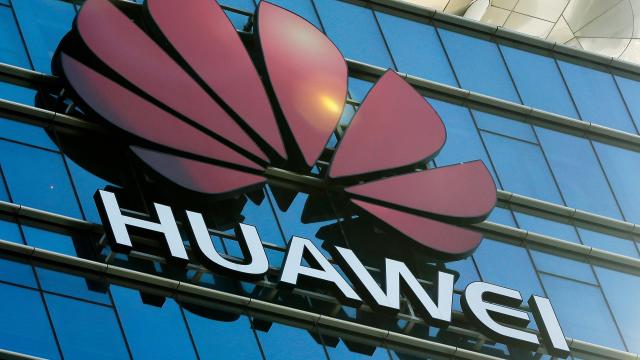Huawei’s ongoing battle with the U.S. government suffered a significant blow on Friday when Canadian authorities ruled that an extradition hearing for the Chinese company’s CFO, Meng Wanzhou, can move forward. The decision capped a week in which Huawei has experienced a series of victories and defeats in its struggle to fend off accusations that it represents a security threat to the world.
Meng is the daughter of Huawei founder Ren Zhengfei, so her case is also deeply personal for the company. In December, she was arrested in Vancouver, and the U.S. Department of Justice is seeking her extradition to face fraud charges over alleged violations of American sanctions.
According to Bloomberg, Canada’s Department of Justice announced this afternoon that it is satisfied that an extradition hearing can proceed. A statement from the agency reads in part:
The decision follows a thorough and diligent review of the evidence in this case. The Department is satisfied that the requirements set out by the Extradition Act for the issuance of an Authority to Proceed have been met and there is sufficient evidence to be put before an extradition judge for decision.
The hearing over Meng’s extradition is scheduled to begin on March 6 and is expected to have political resonance far beyond the courtroom. But the case is just one facet of the Trump administration’s war on Huawei. The U.S. intelligence community has had serious concerns about the telecommunications manufacturer for years.
A trade war with China and the deployment of 5G infrastructure around the world has placed Huawei firmly in the crosshairs of an administration that fears Chinese dominance in the tech sector and the potential for its intelligence services to install backdoors into networking equipment.
The DOJ is also charging Huawei with stealing trade secrets from T-Mobile. On Thursday, representatives for two divisions of the company pleaded not guilty in a federal court in Seattle. The company is accused of stealing proprietary information about a highly sensitive robot arm that’s used for testing smartphones.
Huawei has repeatedly insisted that it does not aid Chinese spying efforts in any way whatsoever and that its relationship with the Chinese government is the same as any other company that operates in that country.
Ahead of Canada’s decision to go forward with Meng’s extradition proceedings, Chinese ambassador to Canada Lu Shaye said the accusations by the U.S. are total “bunk.”
He framed the situation as a political power play saying, “The attack by U.S. and other countries’ intelligence agencies is not based on real national security concerns, but is meant to crowd out Huawei and create unfair competition conditions to benefit their own domestic telecom equipment companies.”
The U.S. has been conducting a frenzied campaign to convince allies to refuse to use Huawei technology in their 5G networks. The new wireless standard is expected to be exponentially faster than the mobile internet speeds we have today and its considered to be a crucial factor in the deployment of upcoming data-hungry technologies like autonomous vehicles.
Amid the product announcements and presentations at the Mobile World Congress trade show in Barcelona this week, a delegation sent by the Trump administration was lobbying countries to avoid Huawei equipment.
But it hasn’t all been bad news for Huawei this week. If it were just an average company showing off new tech at MWC, it would probably be riding high right now. They arguably stole the show with the new Mate X bendable phone. And unlike Samsung, they weren’t afraid to let attendees get their hands on it.
In general, you could characterise Huawei’s posture this week as aggressive. It’s consumer CEO, Richard Yu, told Business Insider that he’d killed plans for a phone with a design that was similar to Samsung’s Galaxy Fold because it was heavy and “bad.”
The company didn’t focus too much on its political difficulties, but it did crack some jokes about the trustworthiness of the U.S. government after the spying revelations that were exposed by former NSA contractor Edward Snowden in 2013. It also took out full-page newspaper ads encouraging the media to come to its firm themselves and telling reporters they shouldn’t believe everything they hear.
Huawei’s efforts to convince the world that its equipment is safe appears to be having some success. On Wednesday, Reuters reported that Germany is close to making a deal with the company that would allow it to roll out 5G equipment in the countries networks, and similar progress has been made in Italy, New Zealand, and the UK.
Last week, Huawei CEO Ren Zhengfei mocked the U.S. for being paranoid and said the whole controversy has been great “promotion” for his company. “5G was not known by common people,” he said in an interview with CBS. “But now, these great figures are all talking about 5G. … And we’re becoming more influential and getting more contracts.”
